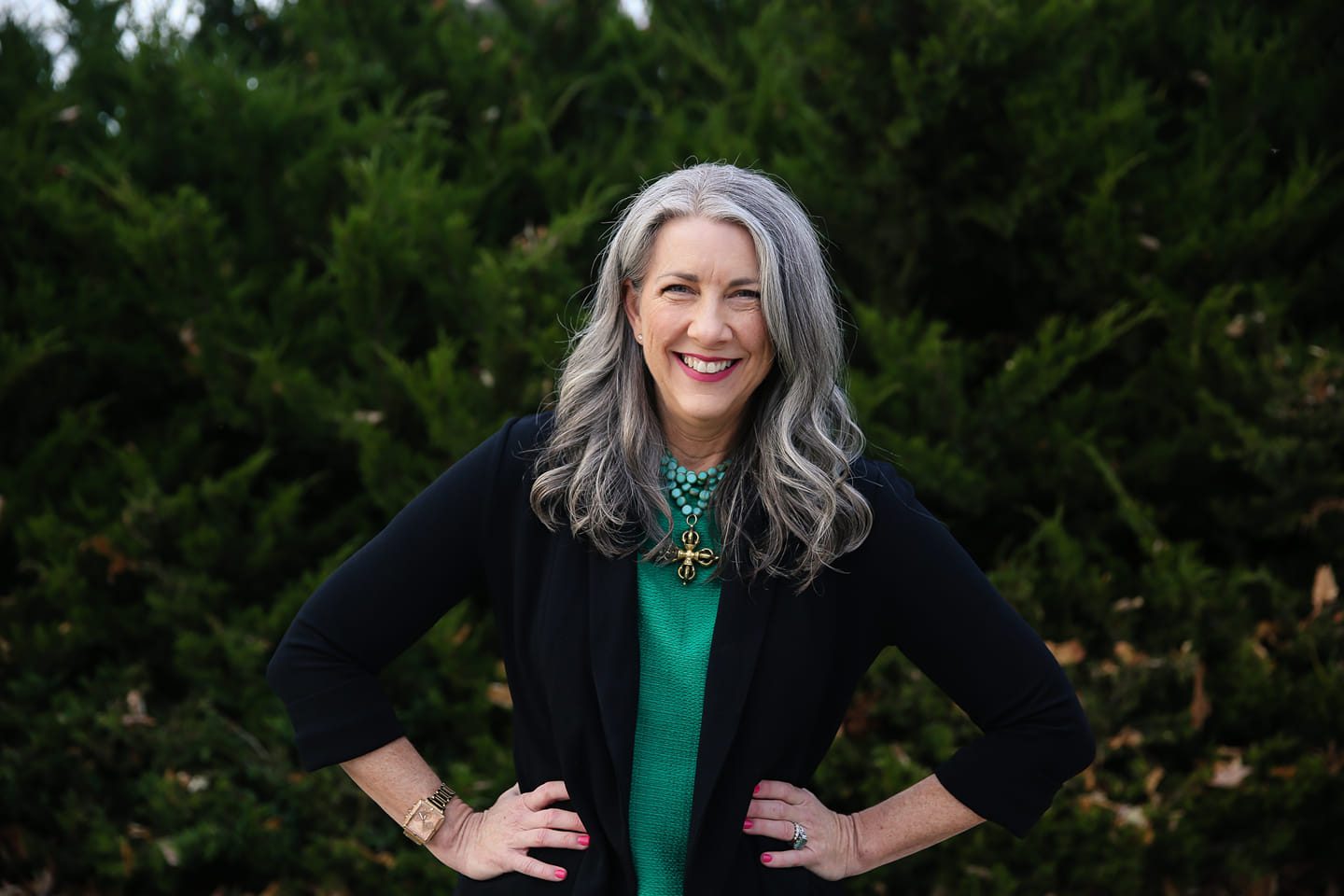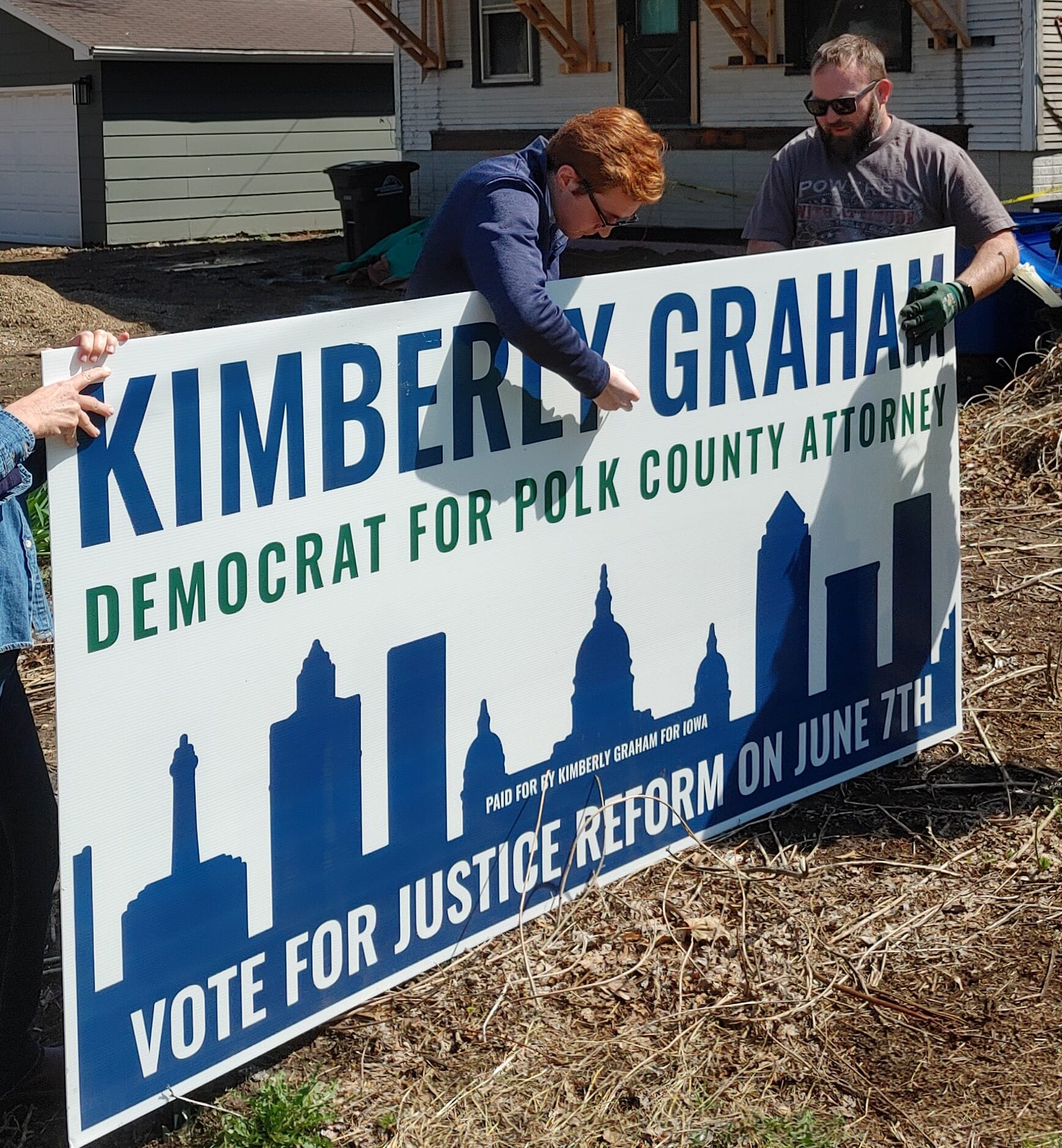Reformers Score a Prosecutor Win in Iowa
Kimberly Graham prevailed in the Democratic primary to replace the prosecutor of Polk County, home to Des Moines, who sparked outrage in 2020 for targeting a journalist.
Daniel Nichanian | June 8, 2022


During the Black Lives Matter protests of 2020, Kimberly Graham was out for a run, listening to podcaster Jonathan Van Ness interview Boston’s reform district attorney Rachael Rollins about the role that prosecutors should play in countering police brutality.
Graham was just coming off a failed bid for the U.S. Senate in Iowa. She told Bolts that hearing Rollins’s remarks inspired her to run for prosecutor next.
Graham took a big step on Tuesday toward becoming the county attorney of Polk County (Des Moines), Iowa’s most populous county. She won a Democratic primary, beating prosecutor Laura Roan and former state lawmaker Kevin McCarthy. She will be favored in the November general election against Republican Allan Richards since Polk County leans blue, though not overwhelmingly so.
Graham, who represents abused and neglected children in court and used to work as a defense attorney, has never worked as a prosecutor and considers her outsider status an asset. “If you’ve been a prosecutor for 30 years, maybe everything just looks like an opportunity to charge someone with a crime and send them to jail or prison,” she told Bolts in an interview conducted before the election. “Public safety and being safe is not just policing and prosecution.”
Graham stresses that strengthening public safety should first involve championing public services, which can prevent people’s involvement in the criminal legal system. Prosecutors lobby lawmakers “all the time,” she said. But “are they lobbying for affordable housing? Are they lobbying for better education and public education funding? Are they lobbying for increased spending on mental health?”
Graham’s politics would represent a stark break from the status quo in the county. Polk County’s prosecutor office drew national headlines recently when County Attorney John Sarcone, who did not seek re-election this year, filed criminal charges against journalist Andrea Sahouri who was covering a Black Lives Matter protest in 2020. First Amendment advocates rallied around Sahouri, demanding that Sarcone drop the charges, but the prosecutor brought her to trial. Sahouri, who worked at The Des Moines Register, was acquitted.
Sarcone also pursued other aggressive prosecutions against BLM activists.
“It’s just completely wrong to be arresting peaceful protesters,” Graham said. The Des Moines Register editorial board endorsed her candidacy last month.
Graham told Bolts that she also hopes to join the ranks of prosecutors like Rollins, who last year was promoted to U.S. Attorney by President Joe Biden, to adopt different approaches to criminal justice policy. “Why are we doing things that are not working, for example, the drug policies that have just gone on the same way as addiction and overdose deaths continue to rise?” she said. “If locking up more people got rid of our drug addiction and overdose death problem, then we wouldn’t have much of one, but it clearly doesn’t.”


Graham’s campaign signs asked voters to “Vote for Justice Reform on June 7.” And the platform page on her website is simply headlined “Criminal Justice Reform.” It features policy planks associated with reform-minded prosecutors, like curbing cash bail and setting a presumption to not charge minors as adults. Many details are vague, though. Graham did not specify what types of cases might be the exception to that presumption.
“What I plan to do here in Polk County is to divert as many kids as we possibly can, to not just reactively prosecute but to really look at how we can keep kids out of the system,” she said, adding she is concerned about Iowa’s near-record racial disparity in youth incarceration.
Graham has also said she would set a presumption of not prosecuting people for “low level, non violent offenses like marijuana possession, but she did not list any other examples when asked for specifics. In her winning Boston campaign in 2018, Rollins released a list of 15 charges for which her presumption would be to not prosecute.
In the campaign’s final stretch, the news that the U.S. Supreme Court may soon overturn Roe vs. Wade injected the issue of abortion into this election. Rulings by Iowa’s state courts would continue protecting abortion access, but some Republicans hope to be able to ban abortions in the state in the coming years. All three Democrats running said that they would not prosecute cases that involve abortion. Graham confirmed that position to Bolts, emphasizing that she was following the footsteps of like-minded prosecutors across the country.
Graham’s win comes on an otherwise tense night for reformers. San Francisco is poised to recall DA Chesa Boudin, one of this emerging movement’s leading figures, halfway through his first term. But some of Boudin’s high-profile peers have fared much better, including Philadelphia’s DA Larry Krasner, who was easily re-elected last year. As of publication on Tuesday, the reform-minded incumbent Diana Becton was beating back a challenger supported by law enforcement groups in California’s Contra Costa County.
The results in Polk County on Tuesday and Graham’s strong chances of winning in November may now strengthen the comparatively meager presence of reform prosecutors in the nation’s Heartland.


